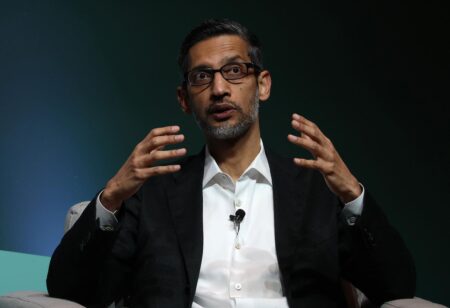Jacob Kupietzky is President of HealthCare Transformation, a company dedicated to providing hospitals with experienced interim executives.
Leadership demands clarity, vision and the ability to make smart, timely decisions. Yet, today’s leaders are bombarded with choices at every turn—from high-level strategic calls to low-stakes, minute-by-minute decisions that silently drain energy and focus. These choices add up: Various sources suggest the average adult makes between 33,000 and 35,000 decisions each day. For business leaders, that number is likely even higher.
It’s no surprise, then, that 85% of business leaders report suffering from decision fatigue (or distress)—a mental exhaustion that diminishes judgment, slows momentum and leaves even the most seasoned leaders second-guessing themselves. More troubling is the fact that this fatigue doesn’t just affect personal well-being; it affects business outcomes. A 2023 Oracle study found that 93% of leaders are certain that “the right type of decision intelligence can make or break an organization.”
In my experience, decision fatigue is an underestimated force working against effective leadership. It creeps in quietly, often disguised as simple exhaustion, indecision or lack of focus. But over time, it can erode confidence and cloud judgment. The good news: It can be mitigated.
The Paradox Of Too Much Information
One of the most surprising contributors to decision fatigue is data itself. Leaders now have more access to data than ever before: financial metrics, customer behavior, employee engagement, industry trends and more. Paradoxically, this abundance can hinder rather than help decision making.
I believe the role of a leader isn’t to absorb every data point but to know which signals matter most. Without a filter, the sheer volume of information can paralyze progress. That’s where decision intelligence—the ability to apply logic, context and experience to data—becomes critical. While data is a necessity for quality decision making, it’s not always about more data; it’s about more discerning decisions.
Strategies To Minimize Fatigue And Maximize Focus
To combat decision fatigue, leaders must intentionally structure their days, teams and organizations to preserve cognitive energy for the decisions that matter most.
1. Build a values-based filter.
Mission, vision and values are more than corporate statements; they’re decision making anchors. When these are clear and deeply embedded, they serve as a framework for evaluating options quickly and consistently. I believe leaders have a responsibility to ensure their teams know and trust these foundational principles, as they serve as a guidepost for making even the most complex decisions.
2. Design better routines.
Not every decision deserves the same level of attention. Leaders can reserve mental energy for strategic thinking by creating default routines for recurring tasks—from when and how meetings are scheduled to how emails are triaged. Barack Obama famously wore one of two suit colors every day during his presidency to avoid “decision clutter.” While that might not be for everyone, the principle stands: Fewer low-stakes choices free up capacity for high-impact thinking.
3. Delegate with purpose.
Empowered teams reduce decision fatigue at the top. When leaders delegate thoughtfully—matching decisions to the right people with the right context—they not only lighten their own load but build trust and autonomy across the organization. This requires leaders to let go of perfectionism and embrace shared ownership.
4. Prioritize rest and recovery.
Fatigued leaders don’t make better decisions by working longer hours. Just as athletes build rest into their training schedules, leaders must carve out time to reset—whether through short breaks during the day or meaningful time off. I’ve found that my best decisions often come after I’ve intentionally stepped away.
Leading With Clarity In A Complex World
Leadership will never be free of hard decisions; nor should it be. But I believe that by embracing routines, clarifying what matters most and using data with discernment, leaders can avoid the trap of fatigue and lead with renewed clarity.
As the world becomes more complex, decision making will only grow more demanding. But those who invest in the systems, structures and self-awareness needed to combat fatigue won’t just make better decisions, they’ll build better organizations.
Forbes Business Council is the foremost growth and networking organization for business owners and leaders. Do I qualify?
Read the full article here











